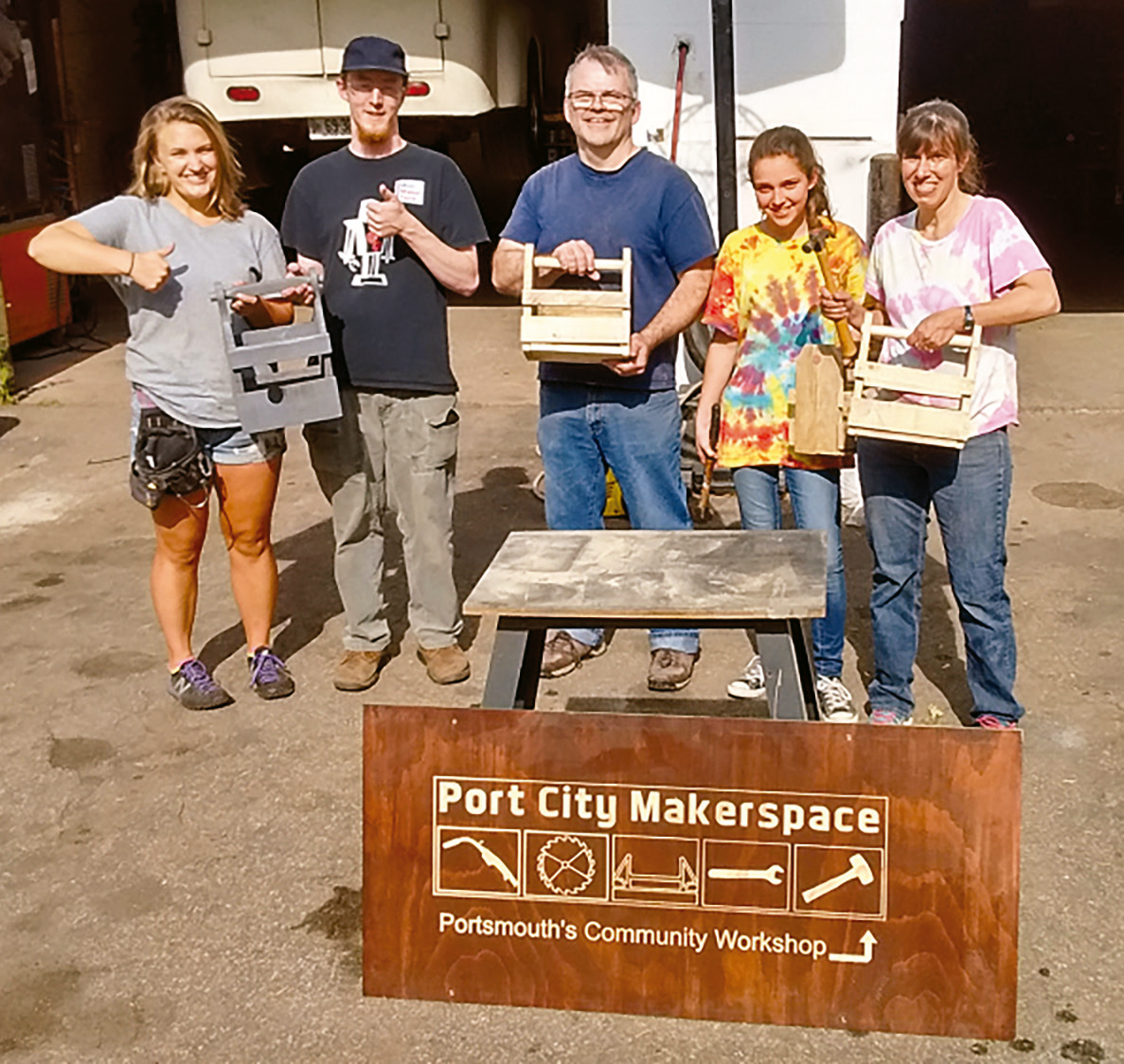

Want to try 3D printing? You can buy a printer for about $500. Want to replace your brakes yourself? It’s easier with a car lift you can buy for about $9,000. Or maybe you want to etch a design onto metal. A laser cutter will cost you about $5,000.
If that’s out of your reach, there’s another way to do it. You could go to Port City Makerspace in Portsmouth, where all those tools and many more are available to you for a modest membership fee. Plus, you can get instruction on how to use the tools. And, you’ll be part of a collaborative community of people.
“Not everybody has a garage shop when they want to build a project, so why not collect different tools, put them in one space, and make them available to the community?” asks Alex Nunn, Port City Makerspace's General Manager.
And that’s what happened 10 years ago, when three longtime friends, Clint Crosbie, Ross Beane and Zak Robinson, founded the makerspace. They joined a rapidly growing national movement to create makerspaces, defined as shared spaces where people can use tools they otherwise wouldn’t have access to for creative projects, to start a business or simply to learn.
After becoming a nonprofit two years from its founding in 2012, Port City Makerspace grew to the point where today it has an 8,000-squarefoot building that houses nine workspaces, including woodworking, metalworking, automotive and bicycle repair, electronics and 3D printing. It also has a soft crafts shop for sewing, knitting and other crafts.
The tools include everything from a car lift to the tiniest of wrenches. In between, there are all manner of saws and sanders, milling machines and lathes, laser cutters and 3D printers, oscilloscopes and routers, a metal engraver and sandblasting cabinet, potters wheel and ceramics kiln, to name just a few. If you haven’t a clue how to operate those tools, there are classes of all kinds, from Intro to CNC Routers to Indigo Fabric Dyeing, as well as informal instruction from staff, volunteers and fellow makers. “One of the nice things about the community shop is that people are always happy to help each other out,” Nunn says. “It’s a very supportive community.”
In addition to providing a space for creative projects, the makerspace acts as a business incubator. Tricia Mansfield, President of the Board of Directors, says, “I think it’s a really great source for people who want to start a business.” It’s suited mostly for craft businesses, like the signmaker who runs his business out of rented space there. Others sell their products internationally on Etsy. USA Today says makers pour $29 billion into the world economy each year.

All that came to a halt when the pandemic hit. Few people were coming to the makerspace. To accommodate the new reality, a tool loan program was initiated so people could do their work at home. The program will continue even after the pandemic subsides. In the meantime, there are filtration units and easy social distancing in the big spaces.
Members have access to those expansive spaces, the tools, the instruction and the community for $50 a month. For $80 a month, they can have access to the building and the tools 24/7. If some find the fees too steep, there are discounted memberships in exchange for volunteering and some scholarships. “We definitely want to be open and inclusive to all people. That’s part of our mission,” Mansfield says.
It may not have been part of the original mission of the makerspace movement, but it’s now becoming instrumental in what’s being called a new industrial revolution, where passive users of products become active creators and innovators. And the educational system is likely to play an ever-expanding role in that as the makerspace model is increasingly adapted to it. “I think it’s really important that people from a young age have hands-on experiences and an ability to think and solve problems in a group setting,” Mansfield says.
Port City Makerspace may play a part in that in the future, but for right now, they’re focused on their core mission of tools, knowledge and a collaborative culture to encourage the artist and maker in everyone. For more information, visit portcitymakerspace.com.
This article appears in the newest Service Credit Union eBook Series, ‘New Beginnings:
Becoming a New Hampshire Entrepreneur’. Download the book at servicecu.org/nhbusinessfinanceguide